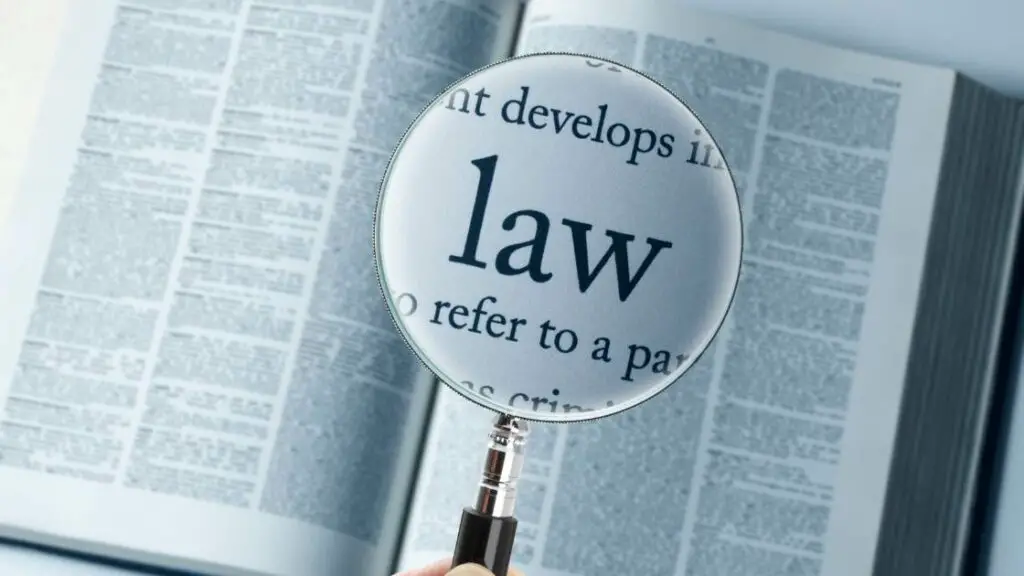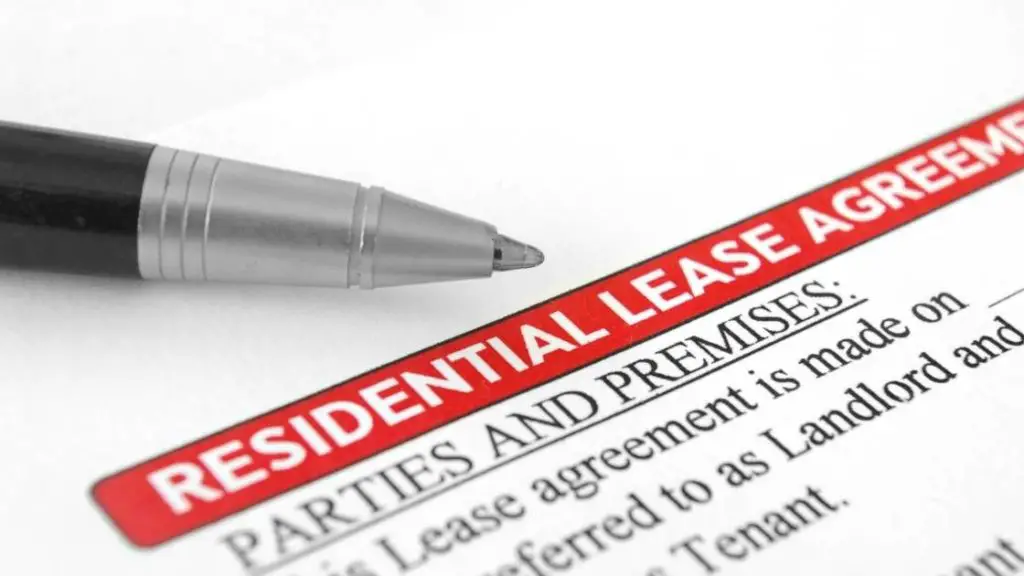Landlords are required to provide a safe and livable dwelling for their tenants. This means they must make critical repairs and keep the property in a habitable condition. What happens if the landlord doesn’t fix things? Can you break your lease?
The short answer is this:
You can break your lease if your landlord’s failure to make timely repairs makes your dwelling uninhabitable. There is an implied warranty of habitability in every lease which requires that a rental property meets basic living and safety standards and if the landlord breaches this, you have a right to terminate your lease early without penalty.
In this article, we will discuss in detail your rights as a tenant when you are faced with this type of situation, including specific things you can do if your landlord doesn’t fix things. Let’s get into it!
The information contained in this post is for informational purposes only. It is not legal advice. You should seek the advice of a qualified legal professional before making any decisions relating to the topics covered by this article.
We may earn commissions from products and services that are purchased or recommended through our website as part of our affiliate partnerships. As an Amazon affiliate, we may earn from qualifying purchases.
What Is the Implied Warranty Of Habitability?

The implied warranty of habitability is an unstated promise that a rental property will be livable. It is generally deemed to be part of every lease agreement, even if it is not expressly laid out.
This warranty includes ensuring that the property is up to code with all applicable safety measures and that it’s generally fit for human occupation. As mentioned earlier, if your landlord fails to provide you with a habitable property, you may have grounds to break your lease.
Now your landlord may argue that the broken items aren’t serious enough to make the dwelling uninhabitable. It’s a common objection and you should be prepared for it. On that note, let’s talk about what types of things make a property uninhabitable.
What May Be Considered a Breach Of The Warranty Of Habitability?
According to Investopedia, some of the most common examples of conditions that must be met to make a dwelling habitable include:
- Drinkable water
- Hot water
- Heat during cold weather
- Working electricity
- Adequate ventilating system
- Smoke and carbon monoxide detectors
- Working bathroom and toilet
- Sanitary premises, including the removal of insect or rodent infestation
- Protection from criminal harm in the form of locks and window guards
- Up-to-date conformity to building codes
So if you have alerted your landlord to a condition that would violate any of the above and they have not corrected the problem within a reasonable period of time, you may have grounds for terminating your lease early based on a violation of the warranty of habitability.
Note: It’s important to note that different states may have different standards on what conditions are serious enough for you to terminate your lease early, so you will want to check the landlord-tenant laws of your state (and in some cases local municipalities).
If you prefer to have a lawyer assist you, I would try JustAnswer. They boast access to thousands of highly-rated, verified real estate lawyers whom you can connect with via their unlimited chat service.
By clicking the banner below, you can get a one week trial membership for only $5, which you can cancel at any time.

Getting back to the topic at hand, as a general rule, the failure to meet the above conditions are acknowledged as serious problems by most states. If you are experiencing any of these issues, be sure to document them with photos and video and keep all of your repair receipts. This will help you prove that the property was not habitable if you ever need to litigate this in court.
What Should You Do If You’re Considering Breaking Your Lease?

In most cases, it is legal for a tenant to break their lease if the landlord is not fulfilling the terms of the lease agreement (including implied terms, like the warranty of habitability). However, there are some things to consider before breaking your lease.
First, you should check if your state has any specific laws dealing with the specific repair at issue.
For example, Virginia’s landlord tenant laws (Section 55.1-1220) specifically outline a landlord’s obligations regarding maintaining a fit premises. They include things like proper mold remediation as well as maintaining in good and safe working order and condition all electrical, plumbing, sanitary, heating, ventilating, air-conditioning, and other facilities and appliances.
If your repair is covered, then you have a pretty strong case for early termination if your landlord fails to take timely action. But if it’s not, then you may need to research a bit more to see what legal standards would apply in your situation. You may want to hire a lawyer to look over your situation and evaluate whether an early termination is feasible based on case law and other factors.
Second, you should review your lease agreement to see if it includes any provisions that specifically deal with your type of repair. In many cases, the lease is clear on who is responsible for what. Bear in mind that just because a lease puts the burden on the tenant, that may not be the end of the story. The laws of your state may trump the lease. Again, this is an area you will want to research (or hire a lawyer to do for you if it looks complex).
If you decide that it is legal and possible to break your lease, you should do a few things to protect yourself. First, you should send your landlord a written notice stating that you are breaking your lease due to their failure to fix critical problems with the property.
Be sure to include the date you first notified the landlord of the issue, including the evidence of the problem that you provided at that time, how they have not complied with the needed repairs within a reasonable amount of time (in some cases, this is outlined under the landlord tenant laws) and that you will be terminating the lease and moving out based on this.
You should also include a clear time for when you will move out, so there is no misunderstanding.
Make sure to save all of your documentation related to the problems with the property and your efforts to get the landlord to fix them. This documentation can be helpful if you need to take legal action against your landlord (or need to defend yourself if the landlord sues you).
If your situation is completely intolerable, but you are not seeing a clear way to terminate your lease legally (either because the unfixed items don’t rise to the level of making your dwelling uninhabitable or your lease doesn’t permit it), you may still have options. Let’s discuss them.
Options When You Can’t Terminate Your Lease Legally

A lot of times landlords don’t want an unhappy tenant because they fear that the tenant will become a “problem” tenant.
Landlords will want to avoid this so in a lot of cases, they may be willing to find a mutually agreeable solution.
One good option is to see if they would be willing to let you out of the lease if you can find a new (and suitable) tenant for them to take over the lease or sign a new lease. I have written a full article on how you can do this here.
Or you could offer to pay the landlord for the right to exit the lease. If you don’t want to shell out any money, you can suck it up and wait for the lease to end. You will need to read the lease carefully to make sure it does not “auto-renew” though (or if it does, you must remember to provide timely notice to the landlord that you don’t want to renew).
A final option you can use if all of the other ones fail is to just vacate the property. Now you will likely be on the hook to pay the remaining rent in most cases, so there are definitely some risks to doing this.
But in many states, the landlord will be required to mitigate their losses and will need to find a replacement tenant. Once the replacement tenant comes in and starts paying rent (assuming it’s at least the same rent as yours), you will be off the hook for the remaining rent payments.
What Are Some Of The Risks With Breaking Your Lease?

As we just discussed, if you are still within the lease term and break your lease agreement, you may be responsible for the following:
- The rent for the remainder of the lease term;
- Any fees associated with re-renting (advertising, cleaning, etc.);
- Security deposit forfeiture.
Another risk of breaking your lease like this is that a landlord may report any non-payment of rent to credit reporting agencies and take you to court. These actions can have a serious and negative impact on your credit score, which could affect your ability to rent a new place in the future.
If your reason for breaking your lease is justified because the premises in uninhabitable (or otherwise in violation of state or local laws) or the landlord has breached the lease, you may be able to avoid some or all of the penalties mentioned above.
For example, in California, if your landlord does not make necessary repairs within 30 days for habitability problems (or in some cases sooner), you are allowed to break your lease without penalty on the principle that you have been “constructively evicted.”
Keep in mind most states have specific statutes of limitations for how long a tenant has to bring legal action against the landlord. If you decide to break your lease, it is essential to speak with an attorney who can advise you on the best course of action and help protect your rights.
But before you choose this final option, consider whether there are any other grounds for termination that we haven’t covered already.
Check out my full article on how to break your lease early without penalty for more details. It includes 11 situations where you can terminate early (plus one bonus option that applies in all situations).
What Should You Do If You’re Being Retaliated Against By Your Landlord For Trying To Enforce Your Rights?
Some landlords may not like the fact that you are complaining about needed repairs and may try to exact revenge. This can come in the form of harassment, raising rents, threatening to sue you, etc.
If your landlord is retaliating against you for trying to enforce your rights, there are a few things you can do.
First, document everything that’s been happening. Keep a journal of the times your landlord has retaliated against you, what they did, and any witnesses that may be able to corroborate your story. This information will be very helpful if you need to take legal action.
You may also want to consider talking to a lawyer. They can advise you on the best way to handle your situation and may be able to represent you in court. Finally, reach out to your local tenant’s rights group. They may provide support or connect you with resources that can help you protect your rights.
No one should have to put up with retaliatory behavior from their landlord, so don’t be afraid to stand up for yourself. With the correct information and support, you can ensure that you’re treated fairly and get the repairs your rental unit needs.
Conclusion
Dealing with a landlord that refuses to make needed repairs is a difficult situation, but the good news is that you may have some solid options to terminate your lease early. Make sure to check your state and local laws (as well as your lease) to see what options are available and take action.


